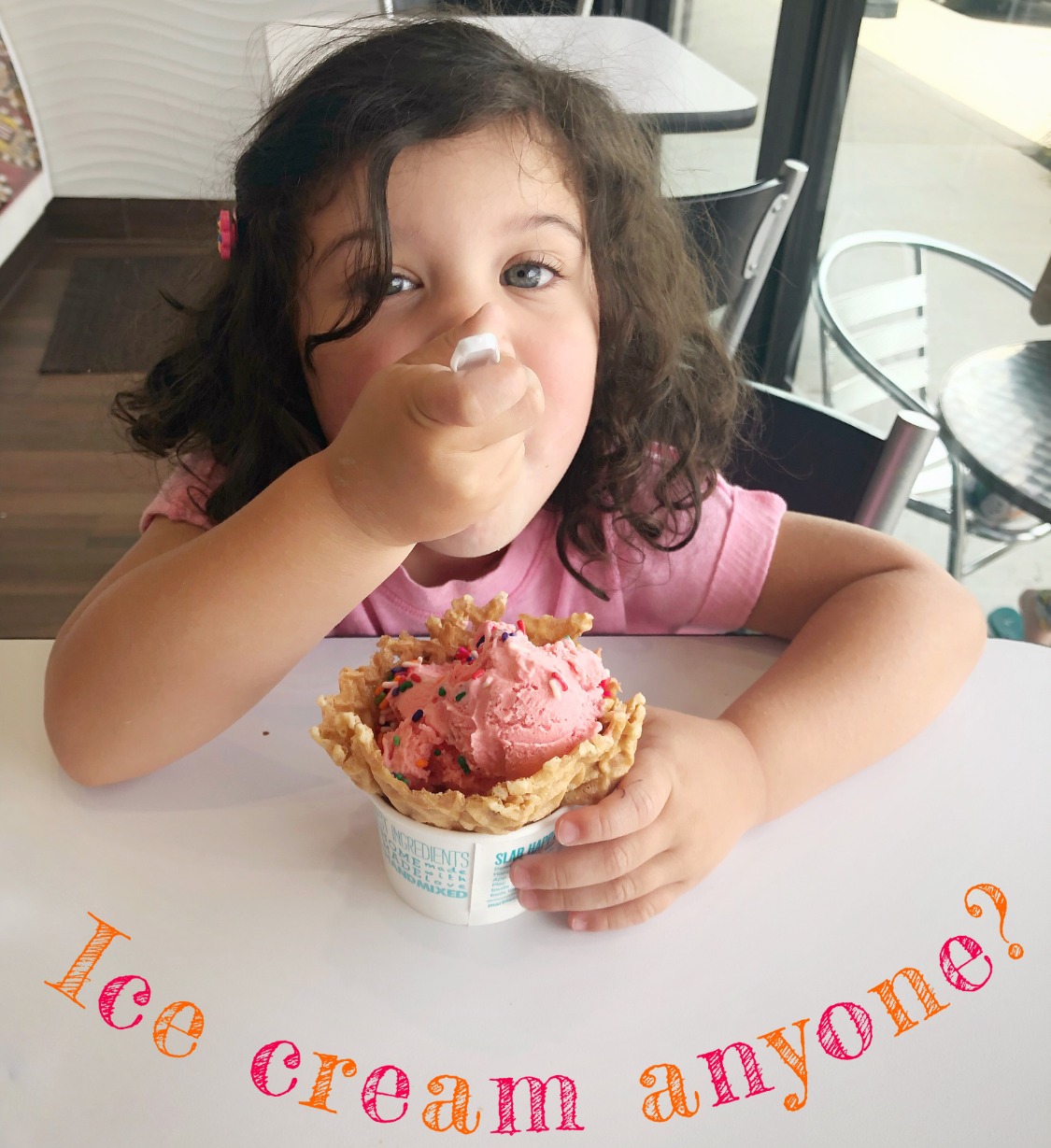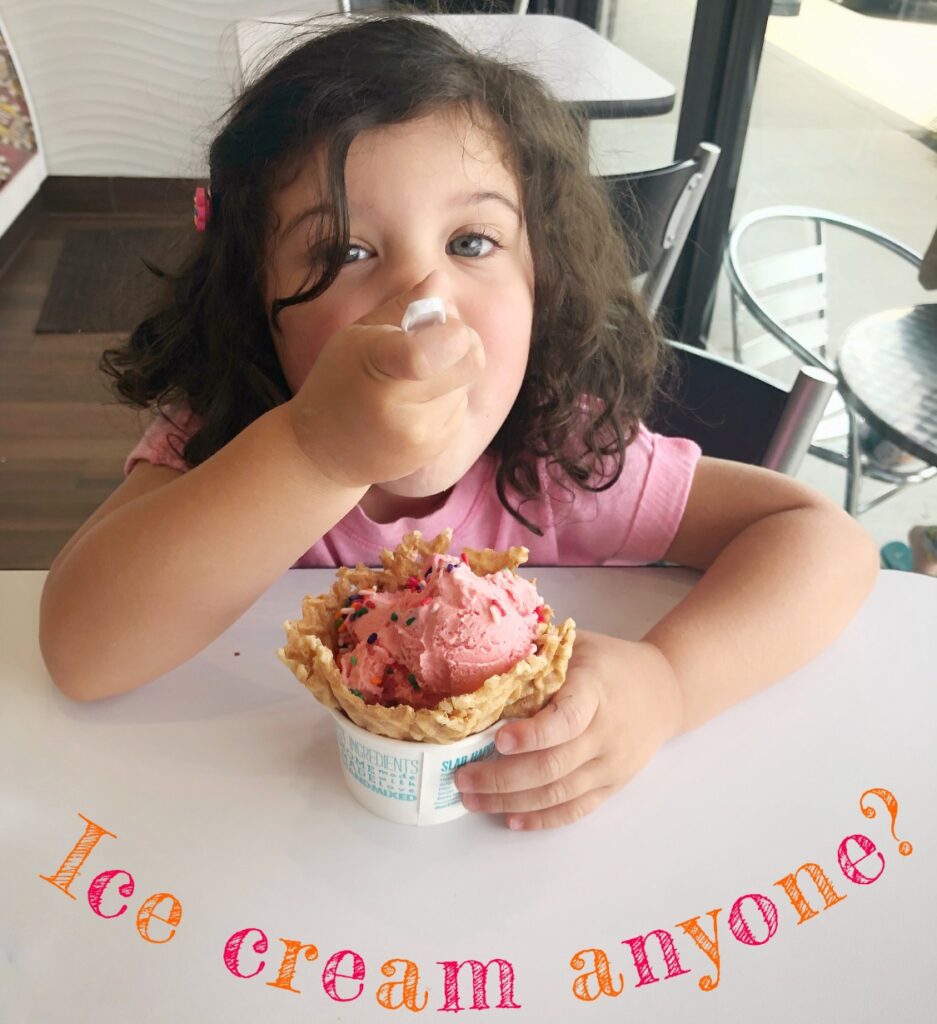Defining My Role… Mom? Dietitian?
share to:

Earlier this year I was able to sneak away from work to visit my family in Northern California. It’s always nice to spend time with my parents and this time around my grandma happened to be visiting as well. This always lends itself to an interesting time. Among many conversations shared, one seems to linger in my mind months later.
Grandma: “For a nutritionist you give your daughter a lot of sugar.”
Me: Awkward silence

Don’t get me wrong I love my grandma. I understand she’s from a different generation but the difficult part for me is understanding that this is the viewpoint from people even in my generation. It does take a lot of effort for me not to rant or get on a soap box about what I do and do not do as a dietitian so that conversation ended promptly.
Living in the role of a dietitian sets me up for a lot of preconceived notions of how I address topics or even how I judge others. Non-diet dietitians are few and far between but the few of us that are around are here to normalize all foods and help others without any of our own judgements. My goal is not for my daughter to be a non-diet dietitian. My goal is her to build a solid relationship with food that does not negatively impact her ability to move through life. We all need food to live and hence need to learn how to incorporate every type of food with the understanding that all foods fit in a healthy diet. I mean if we could photosynthesize then this wouldn’t be an issue but we can’t so why complicate food with rules or rigidity?
As a dietitian in the eating disorder realm of the field and as a mom, my role is to teach her balance and how to have a healthy relationship with food and her body. That means my kid eats vegetables AND ice cream (pretty often).
As a 3 year old she still possesses the ability to be an intuitive eater. She hasn’t experienced dieting (nor will she) and therefore has no distrust in her body. I have no right to take that away from her by moralizing foods. Granted kids are smart and as she gets older she will probably start trying to convince me that ice cream and candy are appropriate for every meal and snack. This is where guidance and boundaries play a part. I do have the responsibility of teaching her balance, variety, and moderation but never through elimination of any foods.

There are days when she craves and seeks out Ice cream or candy and there are days she doesn’t. Both foods along with cookies and other sweets are always in my home, available to her. How can she learn to eat these foods if she isn’t exposed to them? When foods are avoided they tend to become the untouchables that ultimately lead to binges because we haven’t satisfied our cravings. The only way to avoid this is to allow these foods to be in our home and for them to hold the same value and importance as all other types of foods.
Most days and for most people teaching children to have a healthy relationship with food feels like a daunting task.
“I am responsible for this kids relationship with food?? What if I mess up…where do I even begin?”
There is no right or wrong answer for how to go about doing this but having a good relationship with food yourself, as a parent, is super helpful. It allows you to be able to model what a healthy relationship with food likes like, without having to explain things all the time. Through my work I have found that many adolescents have learned from their parents what their intake is supposed to look like and how they are supposed to view their bodies. Completely independent of what the parents said to them but simply from how they have observed their parents throughout their childhood. Our actions are just as important if not more important than the things we say directly to them or recommend. This video is a good reminder that as parents we are constantly being watched and although the video focuses on body image the messages that we put out into the world about food are absorbed in the same way.
“Be kind to yourself. Your daughters [and sons] are listening”
Same goes for food!!
For myself I have found that Ellyn Satter’s Division of Responsibility has set up a pretty good foundation for how I structure our days. So far it seems to be working just fine. Some days she eats minimal food and some days it feels like I have another adult in the house, but that’s what intuitive eating looks like.
Hunger dialogue is just as important. Whether she has a full cognitive understanding of everything I say to her or not, she is hearing neutral language around food and hunger cues at all times. No food is good or bad and hunger is just that hunger; a physical cue that needs to be met and never ignored.